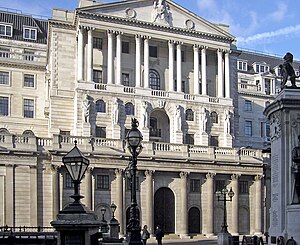
Image via Wikipedia
Massmart said Monday it has received a non-binding expression of interest from Wal-Mart and has entered exclusive talks, capping months of speculation that the retail giant was seeking a foothold in South Africa.
"We have received a non-binding expression of interest from Wal-Mart that could lead to a cash offer of 148 rands ($21) per share for the entire issued share capital of the company," Massmart said in a statement.
"We are at the beginning of the process and it is difficult to say how long it will take or whether it will lead to an offer."
Massmart, which manages several of South Africa's largest retail chains, operates 288 stores in 14 countries around sub-Saharan Africa.
Its brands include Game, Dion Wired, Makro , Builders Warehouse, Builders Express, Builders Trade Depot, CBW
, Builders Warehouse, Builders Express, Builders Trade Depot, CBW , Jumbo Cash and Carry and the Shield buying group.
, Jumbo Cash and Carry and the Shield buying group.
The company, which listed on the Johannesburg stock exchange in 200, reported annual sales of $6.1bn last year.
Wal-Mart has sought to expand aggressively into emerging markets as its US sales have slowed.
The Bentonville, Arkansas-based company reported a record net profit of $3.32bn in the first quarter of 2010, pushed by strong sales in China, Brazil and Mexico.
Wal-Mart in talks to buy South Africa's Massmart, seeks entry into Africa









































